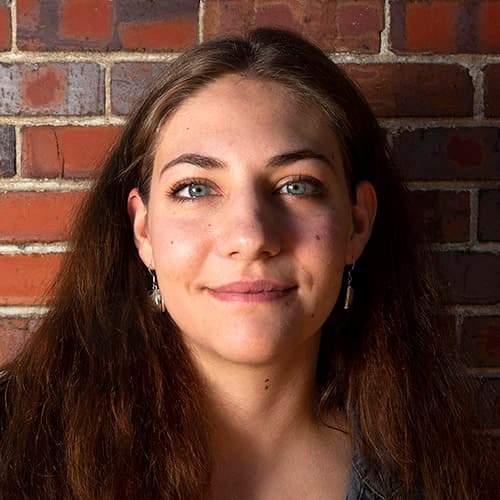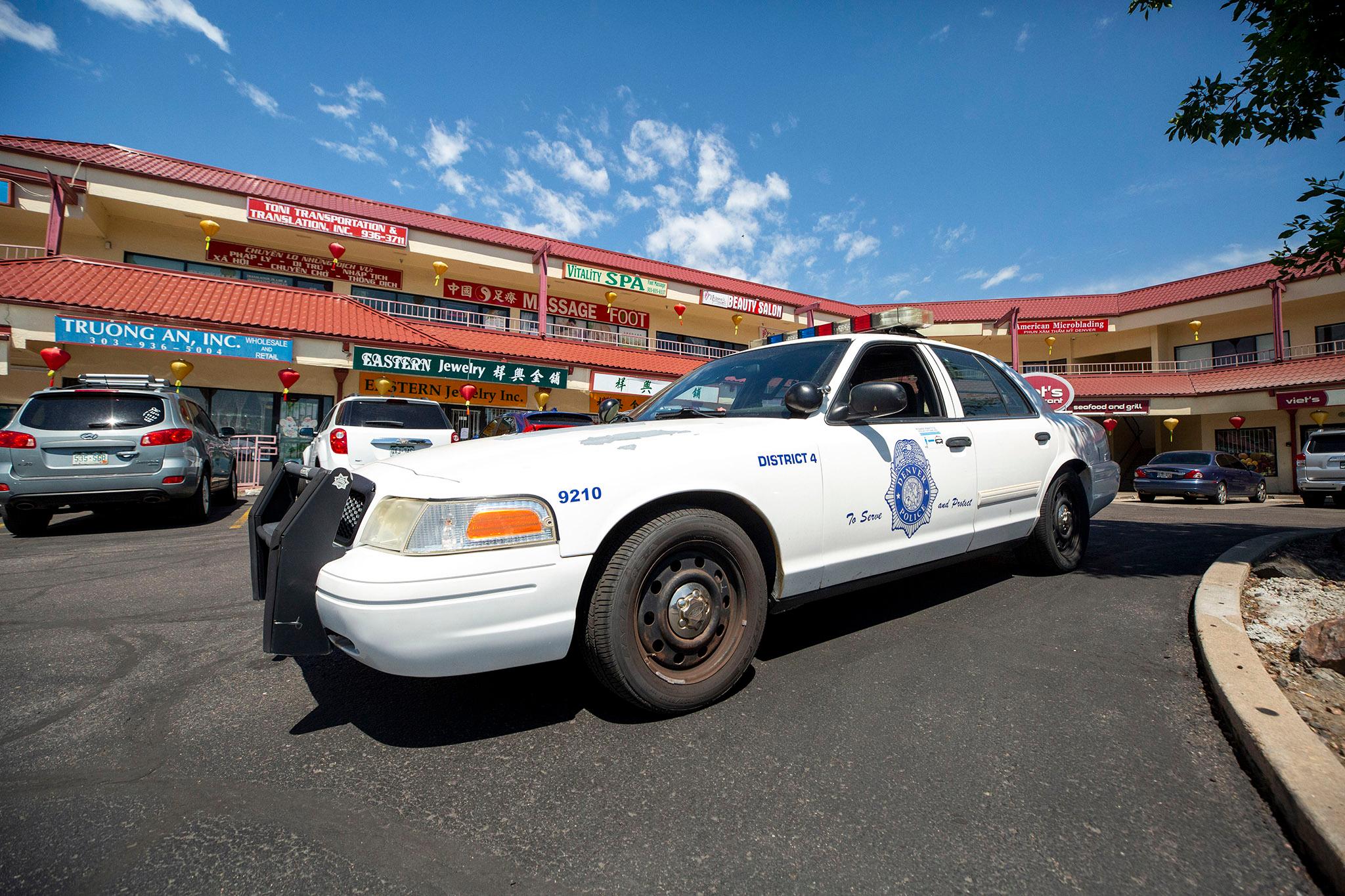The Denver Police Department, a slew of community departments and nearby business owners gathered near South Federal Boulevard and West Alameda Avenue on Friday to send a message about community collaboration. The intersection is one of the city's "crime hot spots" -- groups of blocks with violent crime rates much higher than average.
These areas comprise less than 2 percent of Denver, but nearly half of 2020's shootings happened within their bounds, as well as over a quarter of the city's aggravated assaults and homicides. These locations fall within Denver's "inverted L," or areas with high minority populations, higher crime and higher poverty -- in short, places the city has historically neglected.
The hot spot on Alameda and Federal fits that bill. The Westwood neighborhood is 80 percent Hispanic, with large immigrant and Asian populations. Other hot spots are at the intersection of Colfax Avenue and Broadway, East Colfax Avenue and North Yosemite Street, East 47th Avenue and North Peoria Street, as well as Martin Luther King Jr. Boulevard and North Holly Street.
DPD Chief Paul Pazen described the nameless program, which launched in May, in glowing terms. He said community services and local businesses would band together to help would-be offenders find support, rather than having crime replace crime.
For instance, DPD theorized that arresting someone for selling substances would simply leave a void for another person to sell. But a spokesman could not clearly say what the program and community groups would do to prevent such a scenario.
In fact, the only concrete promises the program offers are more high-visibility patrols. That means more cops in the neighborhood during times crime has statistically been high.
Pearl Lopez is intimately involved in the area's crime reduction efforts. She manages the federal grant DPD was awarded two years ago specifically to tackle crime in the Westwood neighborhood, where the Alameda and Federal hot spot is. The grant lists affiliations with programs like the Boys and Girls Club and Mi Casa.
"Yes, we want to do intervention, but even before that, we really want to do prevention," Lopez said. We are trying to "mitigate the factors before they turn into crime."
She said this should include a big focus on the area's low high school graduation rates, since Westwood's neighborhood demographics are some of Denver's youngest.
The new DPD program doesn't list its affiliations, and when we asked for a list of community partners, answers were once again vague. A spokesperson talked about dismantling crime networks with more precise policing. There are also efforts to secure a grant identical to the one in Westwood to address a hot spot on 47th Avenue and Peoria Street in the Northeast neighborhood.
Lisa Champion, a senior librarian at the Westwood branch of Denver libraries, passed out pamphlets at the event on Friday to help connect young people with support services.
"We're being underutilized right now," Champion said of the library, citing pandemic-related closures as a cause. "We want people to know we're open. We're doing our summer programs for kids. We have free lunch from 10 to one o'clock -- the Jewish Family Services brings it for the kids. So I want people to know we're here."
Other city departments like Human Services, Planning and Development, as well as Transportation and Infrastructure were also present. But there were no clear answers as to how these city departments, the unlisted community groups or DPD itself would fill the "void left by arrests" they want to combat.
Mimi Luong is the property manager for the Far East Center, a marketplace offering East Asian cuisines and gifts, where Friday's event was hosted. It is inside one of the city's five crime hot spots.
"I think this is just the first step. We don't really know how it's gonna go from here," she said of the new program. "We would hope that, starting from this point on, that we can collaborate together with the city and the police department and the whole Westwood community to help bring this area a more safe environment."
But Luong was not aware of any concrete supports the program would provide.
The program is reminiscent of other DPD initiatives to improve community interactions with police, like the LEAD and STAR programs, minus a specific implementation plan and convenient acronym.













